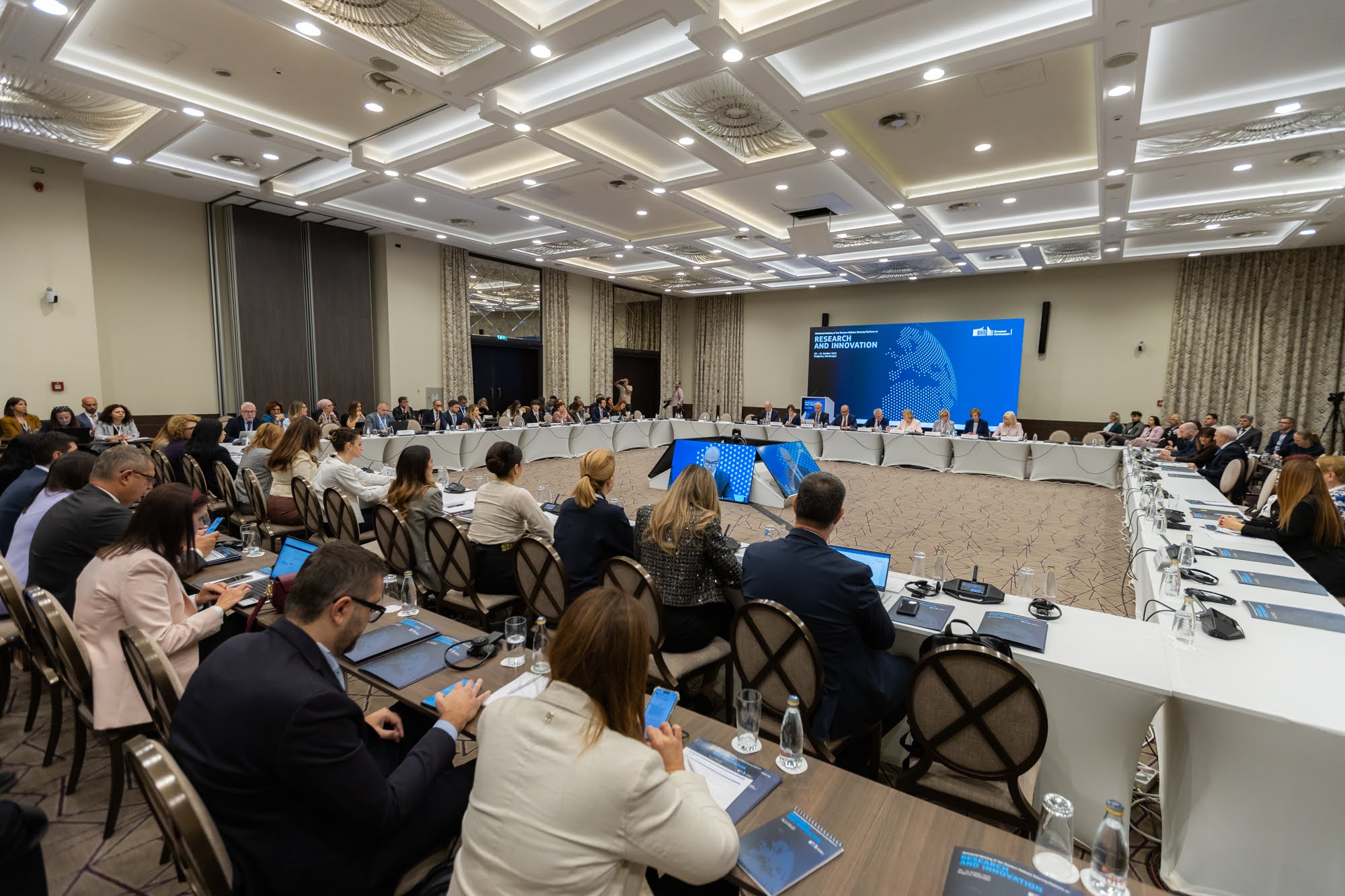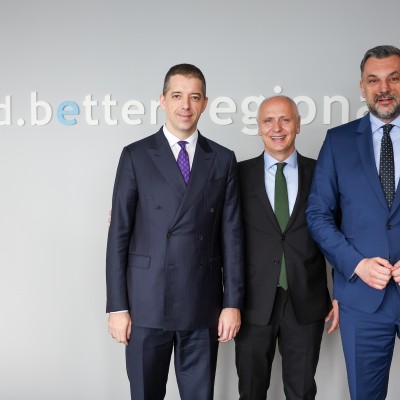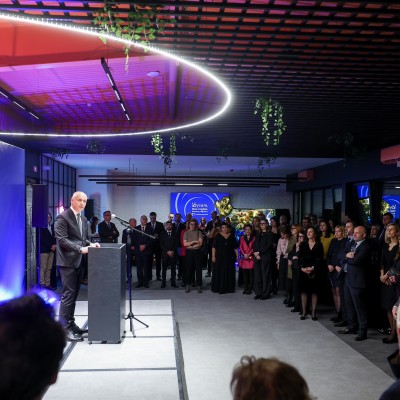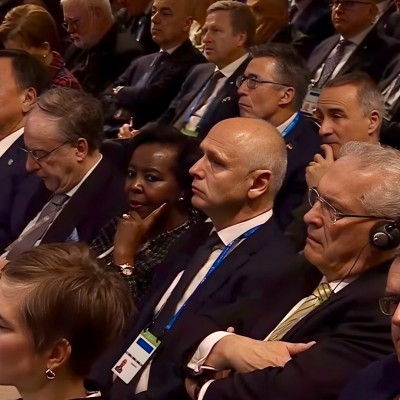Kapetanović: Regional cooperation can turn a significant start-up potential into measurable growth
20 October 2025

RCC Secretary Genera Amer Kapetanovic joined the Ministerial Meeting on Research and Innovation where he presented the joint study “The Western Balkans Start-up Ecosystem at a Crossroads”, in Podgorica on 20 October 2025 (Photo: RCC/Danilo Papic)

RCC took part in the Ministerial Meeting of the Western Balkans Steering Platform on Research and Innovation organized in Podgorica on 20 October 2025 (Photo: Danilo Papic)
RCC and EU partners present study mapping the Western Balkans start-up ecosystem
Podgorica – The Regional Cooperation Council (RCC), together with the European Institute of Innovation and Technology (EIT) and the Enterprise Europe Network (EEN), presented the joint study “The Western Balkans Start-up Ecosystem at a Crossroads” at the Ministerial Meeting of the Western Balkans Steering Platform on Research and Innovation, co-organised by the European Commission, Council Presidency of the European Union and the Government of Montenegro.
The study, unveiled by RCC Secretary General Amer Kapetanović and Signe Ratso, Deputy Director-General, DG for Research and Innovation at the European Commission, provides the first regional analysis of the start-up landscape across the Western Balkans Six (WB6), highlighting both strong progress and critical barriers to scale.
According to the report, the region’s ICT sector employs around 150,000 people and contributes 2% to GDP, yet start-ups secured only €29.5 million in total funding in 2024, far below neighbouring EU Member States. Limited private investment, fragmented regulations and ongoing brain drain remain the main obstacles to growth.
Amer Kapetanović, RCC Secretary General, said: “Our region’s start-up ecosystem is full of entrepreneurial energy, but it still lacks structured support for sustainable growth. That’s why we developed a concept for the Regional Innovation for Start-ups Excellence – RISE – a programme designed to connect innovative entrepreneurs with experienced mentors, provide targeted training to bridge skills gaps, and offer small-scale funding to help teams cross the early-stage ‘valley of death’. RISE will help both inexperienced innovative teams and promising start-ups to move from concept to market-ready product, and we hope governments across the region will join us in making it a reality.”
Deputy Director-General Signe Ratso added: “This report combines the EIT’s expertise in innovation and entrepreneurship, the RCC’s role in fostering regional integration, and the EEN’s extensive SME support network in the region. Together, we work towards strengthening innovation ecosystems, reducing disparities, and ensuring that local innovators can fully benefit from Europe’s Single Market for Innovation.”
The cooperation between RCC, EIT and EEN, through this study and beyond, focuses on strengthening the region’s integration into the EU innovation ecosystem - from skills development and access to finance to cross-border networking through the EIT Regional Innovation Scheme and Enterprise Europe Network.
Secretary General Kapetanović joined the Ministerial Meeting on Research and Innovation together with Ase Gornitzka, President of the COST Association, and Martin Kern, Director of the European Institute of Innovation and Technology. Kapetanović emphasised that the success of the region’s innovation agenda depends on strong collaboration among governments, research institutions, businesses, and civil society, stressing that the Western Balkans should become not just a participant but a driving force in Europe’s innovation ecosystem.
The full study is available at link.
***
“The Western Balkans Start-up Ecosystem at a Crossroads” report is an analytical and research-based work conducted by professional researchers. It serves as a set of recommendations and a foundation for further discussions based on the study’s findings and stakeholder input. The recommendations provided do not represent any commitments on behalf of the study producers or any other parties, including the European Commission, the EIT, or the RCC. Implementation of the recommendations is fully subject to resource availability and any necessary formal approval processes, in accordance with established rules and regulations.



